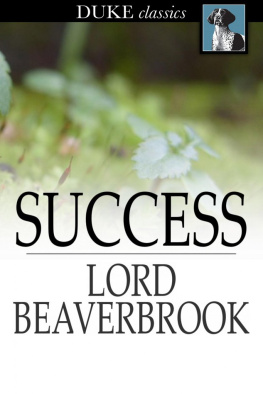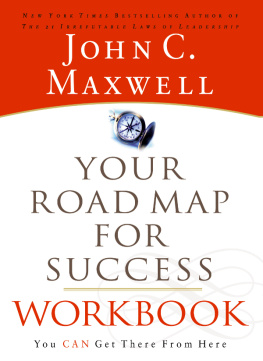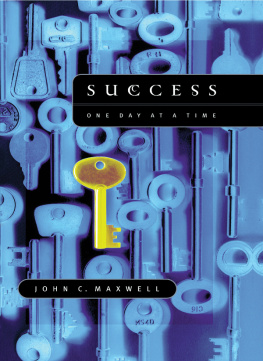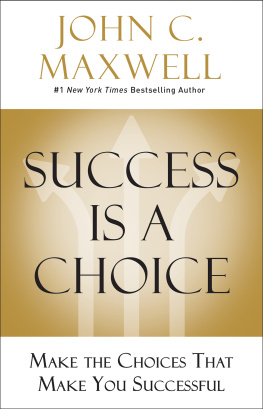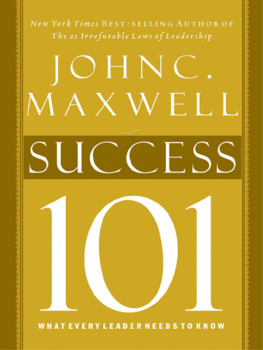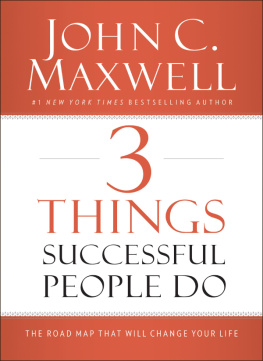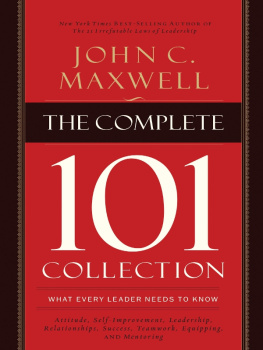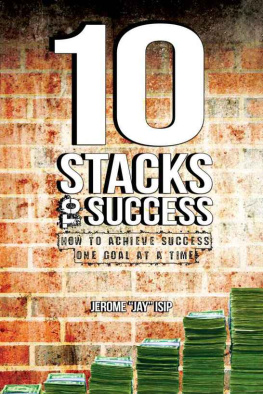SUCCESS
* * *
LORD BEAVERBROOK
*
Success
From a 1921 edition
ISBN 978-1-62011-558-9
Duke Classics
2012 Duke Classics and its licensors. All rights reserved.
While every effort has been used to ensure the accuracy and reliability of the information contained in this edition, Duke Classics does not assume liability or responsibility for any errors or omissions in this book. Duke Classics does not accept responsibility for loss suffered as a result of reliance upon the accuracy or currency of information contained in this book.
Contents
*
Publishers' Note
*
The contents of this volume originally appeared as weekly articles by Lord Beaverbrook in the Sunday Express. They aroused so much interest, and so many applications were received for copies of the various articles, that it was decided to have them collected and printed in volume form.
He who buys Success, reads and digests its precepts, will find this inspiring volume a sure will-tonic. It will nerve him to be up and doing. It will put such spring and go into him that he will make a determined start on that road which, pursued with perseverance, leads onwards and upwards to the desired goalSUCCESS.
Printed by Hazell, Watson & Viney, Ld., London and Aylesbury.
Preface
*
The articles embodied in this small book were written during the pressure of many other affairs and without any idea that they would be published as a consistent whole. It is, therefore, certain that the critic will find in them instances of a repetition of the central idea. This fact is really a proof of a unity of conception which justifies their publication in a collected form. I set out to ask the question, "What is success in the affairs of the world how is it attained, and how can it be enjoyed?" I have tried with all sincerity to answer the question out of my own experience. In so doing I have strayed down many avenues of inquiry, but all of them lead back to the central conception of success as some kind of temple which satisfies the mind of the ordinary practical man.
Other fields of mental satisfaction have been left entirely outside as not germane to the inquiry.
I address myself to the young men of the new age. Those who have youth also possess opportunity. There is in the British Empire to-day no bar to success which resolution cannot break. The young clerk has the key of success in his pocket, if he has the courage and the ability to turn the lock which leads to the Temple of Success. The wide world of business and finance is open to him. Any public dinner or meeting contains hundreds of men who can succeed if they will only observe the rules which govern achievement.
A career to-day is open to talent, for there is no heredity in finance, commerce, or industry. The Succession and Death Duties are wiping out those reserves by which old-fashioned banks and businesses warded off from themselves for two or three generations the result of hereditary incompetence. Ability is bound to be recognised from whatever source it springs. The struggle in finance and commerce is too intense and the battle too world-wide to prevent individual efficiency playing a bigger and a better rle.
If I have given encouragement to a single young man to set his feet on the path which leads upwards to success, and warned him of a few of the perils which will beset him on the road, I shall feel perfectly satisfied that this book has not been written in vain.
BEAVERBROOK.
Success
*
Successthat is the royal road we all want to tread, for the echo off its flagstones sounds pleasantly in the mind. It gives to man all that the natural man desires: the opportunity of exercising his activities to the full; the sense of power; the feeling that life is a slave, not a master; the knowledge that some great industry has quickened into life under the impulse of a single brain.
To each his own particular branch of this difficult art. The artist knows one joy, the soldier another; what delights the business man leaves the politician cold. But however much each section of society abuses the ambitions or the morals of the other, all worship equally at the same shrine. No man really wants to spend his whole life as a reporter, a clerk, a subaltern, a private Member, or a curate. Downing Street is as attractive as the oak-leaves of the field-marshal; York and Canterbury as pleasant as a dominance in Lombard Street or Burlington House.
For my own part I speak of the only field of success I knowthe world of ordinary affairs. And I start with a contradiction in terms. Success is a constitutional temperament bestowed on the recipient by the gods. And yet you may have all the gifts of the fairies and fail utterly. Man cannot add an inch to his stature, but by taking thought he can walk erect; all the gifts given at birth can be destroyed by a single curse.
Like all human affairs, success is partly a matter of predestination and partly of free will. You cannot make the genius, but you can either improve or destroy it, and most men and women possess the assets which can be turned into success.
But those who possess the precious gifts will have both to hoard and to expand them.
What are the qualities which make for success? They are three:
Judgment, Industry, and Health, and perhaps the greatest of these is judgment. These are the three pillars which hold up the fabric of success. But in using the word judgment one has said everything.
In the affairs of the world it is the supreme quality. How many men have brilliant schemes and yet are quite unable to execute them, and through their very brilliancy stumble unawares upon ruin? For round judgment there cluster many hundred qualities, like the setting round a jewel: the capacity to read the hearts of men; to draw an inexhaustible fountain of wisdom from every particle of experience in the past, and turn the current of this knowledge into the dynamic action of the future. Genius goes to the heart of a matter like an arrow from a bow, but judgment is the quality which learns from the world what the world has to teach and then goes one better. Shelley had genius, but he would not have been a success in Wall Street though the poet showed a flash of business knowledge in refusing to lend money to Byron.
In the ultimate resort judgment is the power to assimilate knowledge and to use it. The opinions of men and the movement of markets are all so much material for the perfected instrument of the mind.
But judgment may prove a sterile capacity if it is not accompanied by industry. The mill must have grist on which to work, and it is industry which pours in the grain.
A great opportunity may be lost and an irretrievable error committed by a brief break in the lucidity of the intellect or in the train of thought. "He who would be Csar anywhere," says Kipling, "must know everything everywhere." Nearly everything comes to the man who is always all there.
Men are not really born either hopelessly idle, or preternaturally industrious. They may move in one direction or the other as will or circumstances dictate, but it is open to any man to work. Hogarth's industrious and idle apprentice point a moral, but they do not tell a true tale. The real trouble about industry is to apply it in the right direction and it is therefore the servant of judgment. The true secret of industry well applied is concentration, and there are many well-known ways of learning that artthe most potent handmaiden of success. Industry can be acquired; it should never be squandered.

